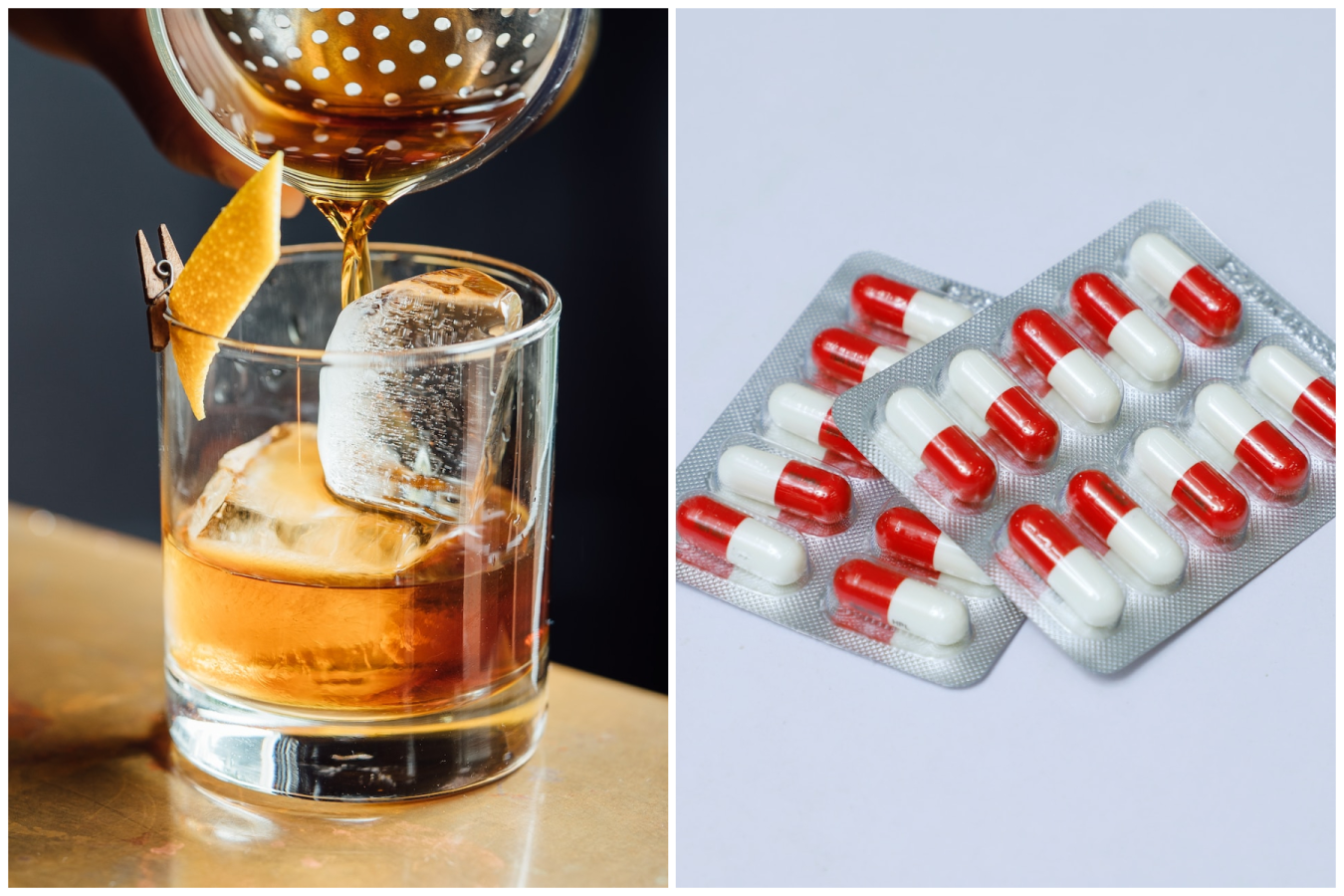For many people, having an alcoholic drink on special occasions or when out with friends can be harmless. But if you have taken medication, it is best not to drink alcohol as the combination can cause health problems, from nausea and headaches to internal bleeding and breathing difficulties.
When you take a medication, it travels to the stomach to reach the liver. There it is metabolized and broken down to enter the bloodstream. Each dose you take takes this process into account. When you drink alcohol, it is also broken down in the liver, which can affect the amount of medication that passes into the blood and therefore its effect.
Some drugs are metabolized more, which can mean not enough of them reaches the blood to be effective, while others are metabolized less, meaning you get a much higher dose than intended, which could lead to an overdose, academics Nial Wheate and Jessica Pace told the BBC.
Internist Eduardo López indicates that, when mixing medications with wine or beer, because these drinks contain a substance called “Tyramine”, it can cause gastrointestinal symptoms such as nausea or vomiting. “There can usually be consequences where the effect of the medication is enhanced or diminished, depending on the type of medicine,” he adds.
What happens if you take medication and alcohol?
Combining drugs with alcoholic beverages can cause different consequences, which will depend on the type of medicine consumed. However, the mildest effects are nausea, vomiting, fainting, loss of coordination, headache, and palpitations.
The most serious effects include internal bleeding, heart problems, and breathing difficulties, say, Lorena Cerna, head of the Guatemalan Drug Information Center (CEGIMED), and Carolina Guzmán, head of the Toxicological Information and Advisory Center (CIAT).
In addition to these consequences, alcohol can reduce the therapeutic action of the medication and even nullify it completely, turning it into something harmful or toxic for the body.
“Alcohol, like some medications, can cause drowsiness, lethargy, or dizziness. Drinking alcohol in combination with medications can intensify these side effects. You may experience difficulty concentrating or performing mechanical activities,” describes the National Institute on Alcohol Abuse and Alcoholism in the United States.
Medicines should not be taken with alcohol.
Many medications interact with alcohol, whether prescribed by a doctor or purchased over the counter. “ There is no safe amount of alcohol consumption. Alcohol should not be consumed if you are pregnant or think you may be, nor if you are breastfeeding,” says Cerna and Guzmán.
The most common medications that should not be mixed with alcohol are antibiotics, antihistamines, analgesics, anxiolytics, or drugs for psychiatric use. These include paracetamol, aspirin, antibiotics such as penicillin, azithromycin, metronidazole, and benzodiazepines such as alprazolam or clonazepam.
Other drugs that should not be mixed with alcoholic beverages are:
- Acetylsalicylic acid (Aspirin): causes adverse reactions such as stomach pain, gastric irritation, and bleeding, and when taken simultaneously with alcoholic beverages, this effect is enhanced to the point of producing ulcers. If the person suffers from liver problems, liver damage may increase.
- Antiallergic drugs or antihistamines: These are used for allergy problems. First-generation antihistamines, such as chlorpheniramine maleate, cause drowsiness, an adverse reaction that is aggravated by simultaneous alcohol consumption, so driving or operating machinery is not recommended.
- Antibiotics: Because alcohol increases the hepatic metabolism of some antibiotics, it makes them less effective and increases the risk of gastric irritation or bleeding. Metronidazole, an antibiotic and antiprotozoal, can produce the disulfiram effect (nausea, vomiting, headache, flushing, and palpitations). Linezolid, with red wine or beer, could cause an increase in blood pressure.
- Medications for thyroid, prostate, and diabetes: these drugs should not be combined with alcohol. In addition, it is recommended that they not be discontinued because they could cause a loss of control of health.
- Ibuprofen: Medications taken to relieve minor pain (such as muscle aches), fever, and inflammation, when combined with alcohol may cause stomach upset, bleeding, ulcers, and a rapid heartbeat. Acetaminophen may cause ulcers and liver damage.
The National Institute on Alcohol Abuse and Alcoholism lists some medications that interact with alcohol and what the possible effects are.
- Heartburn, indigestion, and sourness: drugs with active ingredients such as nizatidine, metoclopramide, cimetidine, and ranitidine cause accelerated heart rate, sudden changes in blood pressure, and increased effects of alcohol.
- Allergies, colds, and flu: cause lethargy, dizziness, and increased risk of overdose
- Anxiety and epilepsy: Lorazepam, Buspirone, Clonazepam, Chlordiazepoxide Paroxetine, Diazepam, and Alprazolam components cause lethargy, dizziness, slow or difficult breathing, loss of motor control, unusual behavior, and memory failure.
- High cholesterol: These drugs may cause liver damage, facial flushing and itching, and increased stomach bleeding.
- Depression: Medication taken for depression, when combined with alcohol, can cause lethargy, dizziness, deepen the feeling of depression or hopelessness, and poor motor control, among other consequences.























+ There are no comments
Add yours